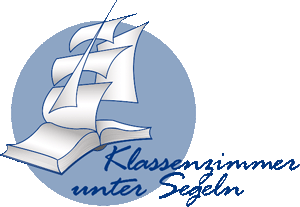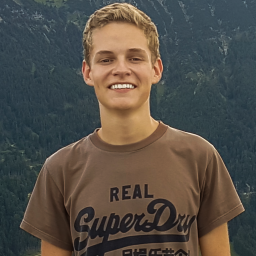posted on 30.11.2017
posted by Leon
During the time before the trip, I’ve often been asked whether we do have school aboard the Thor Heyerdahl. And now I can say: Yes. We do. But it’s not like “normal” school at home. We are divided into two groups: A and B. The lessons’ content is according to the Bavarian school curriculum and KUS’ own curriculum. Subjects like PE, Art, Music, Religions, French or Latin aren’t taught at all. Since the students on board are from all over Germany and have different levels of knowledge in science and languages, the groups are planned in order to talk more about the topics they need to improve.
In fact, we hadn’t had any lessons until we left Tenerife. They will last until we arrive at the Azores. Always, when we’re at sea, we have six days of school every week. Every day, the groups A and B alternate with having their sentry-duty or school. Before we had school on board, there were about ten people in every watch. Since they have been split into two groups, there are only five people in sentry-duty at once. This means, you don’t have as much free time as you had before because there’s the same amount of work to do with less people. Talking of work … to improve the classes’ quality and to reduce the giant quantity of work the teachers have to do, two students have to prepare some materials needed before the lessons start, like mounting the black board above deck or looking for the right books in the library.
Concerning times, one can state that school begins at 8:30 in the morning. In comparison with my wake-up time at home, I can sleep two hours longer. One lesson lasts 45 minutes. And after every lesson, there is a five minute break for eating or drinking. We have 10 lessons every day from Monday to Friday. On Saturdays, there are only five lessons. Since everyone wants to have as many classes as possible, the group that has school on Saturday changes every week.
In order to reduce the lessons to the least time possible, we only learn about new topics and don’t have as much time to revise, as we’re used to from home. Therefore, we have some time to revise with other pupils on the days we have sentry-duty. We meet in groups and talk about stuff we didn’t understand or read about certain subjects we’re interested in. On the way back home, we can use that time to catch up on all the topics in all subjects we haven’t had here. In total, we only have about 40% of ‘normal school lessons’ we would have at home. But you have to consider that we learn and work in many other ways: presentations, seminars or projects like astronomic navigation are only a few examples.
However, after two weeks of school aboard, I can say it’s more like “normal” school than I’d thought it would be. There are some small differences, like you can’t just put your school materials on the table, except you want them to fly away and never come back. It’s often happened that one didn’t watch out and the working sheets flew into the water on the floor. But luckily it’s very warm so you can just put them on a rope and wait until they’re dry.
Actually, heat is also a problem in the warm areas we’re getting into. Even here in relatively northern areas like Spain we were already sweating a lot. So the water on deck also has its advantages. It’s very comfortable to have some fresh sea water flowing around your feet. All tables on deck are tied up and everyone has to sit in a special position to not fall over when a big wave hits the ship. And sometimes there are even flying fish that want to land in your Math books.
All in all, it’s fun to have that very great and unique experience of another type of school. Even though it’s really annoying to be sitting there and learning while others can lay in the sun or swim in the pool. 😀


